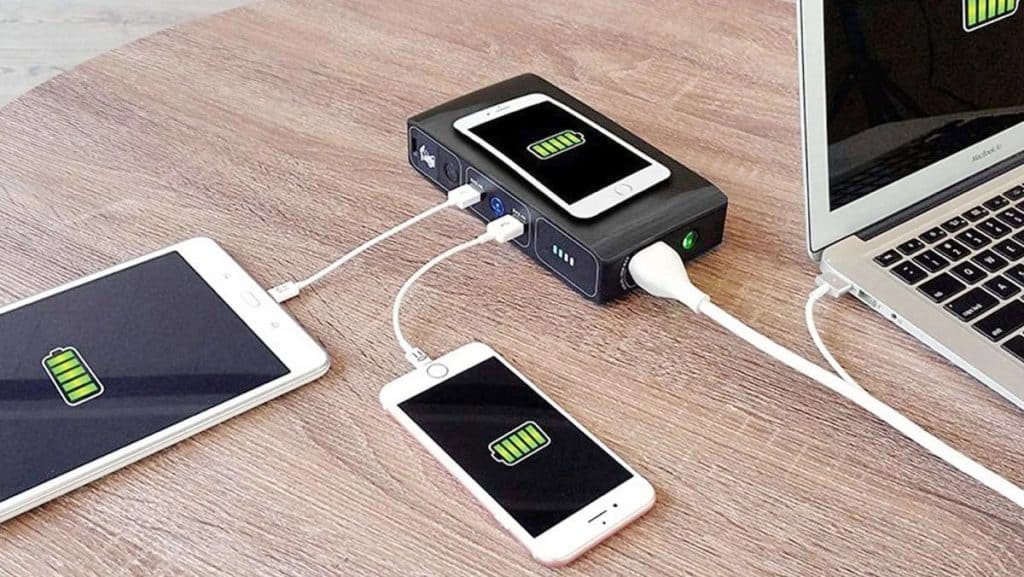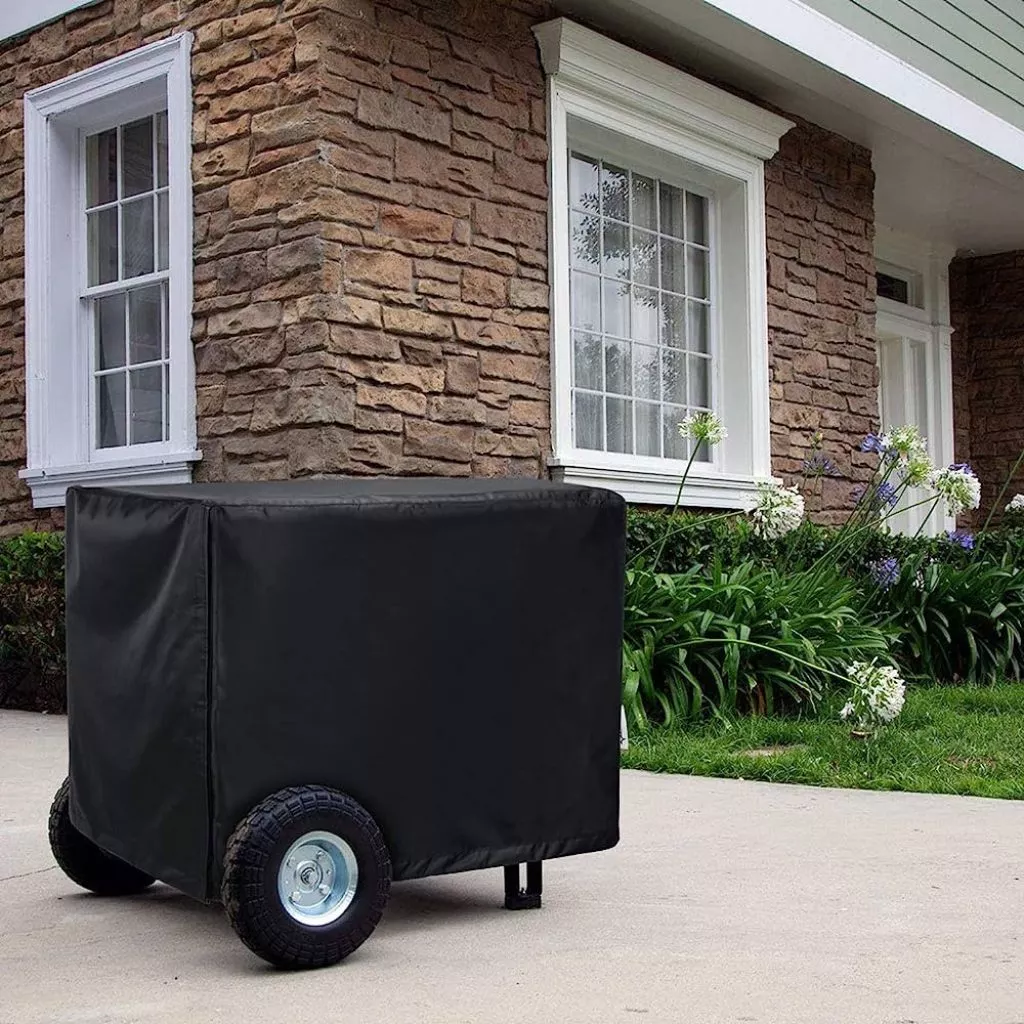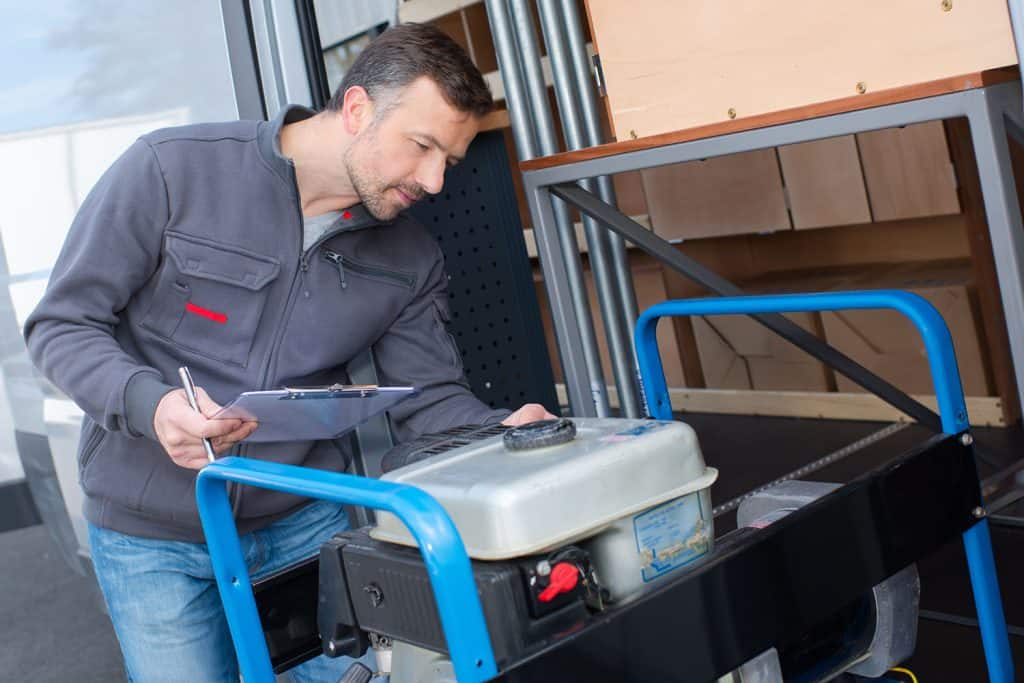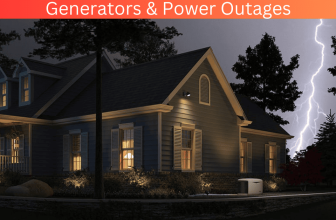Power outage is undeniably frustrating as they tend to disrupt household activities and routines unexpectedly. However, these seemingly ordinary setbacks pose significant threats if not handled with utmost care.
Although owning a portable generator enhances preparedness for unexpected events such as outage, misusing it could prove detrimental instead of helpful. To ensure optimal safety when operating generators during power losses is priority. Therefore, in this article, we aim at equipping our readers with essential knowledge on appropriate procedures for safe usage of generators during disasters and power outage.

Blackout Basics: Proper Placement Of Portable Generators For Safe Use
In times of power outages when tension runs high and electricity becomes a luxury. Portable generators become incredibly valuable in providing immediate solutions. Nevertheless, handling these machines carelessly can pose grave danger hence the importance of observing guidelines for safe usage beforehand.
It is crucial first and foremost to have an ideal spot ready for placement before starting up your generator. The location should always be outdoor with enough clearance around open doors/windows/vents of at least 20 feet away minimum so that emissions don’t penetrate living spaces causing harm or illness. Combustible materials must be kept as far away as possible to prevent contact with the generator during use.
Besides, it is advisable to avoid storing fuel inside your home/garage and utilize a shed or any similar safe structure that guarantees maximum security. Moreover, using a level surface such as concrete/asphalt while placing your generator ensures stability throughout use which prevents accidents caused by wobbling or shifting of the machine.
Ultimately, keeping carbon monoxide in mind and ensuring continuous air circulation is an additional safety measure that should never be ignored. By following these steps carefully you can use your portable generator safely knowing that you have taken all necessary precautions.
Fresh Air Focus: Avoiding CO Dangers During Power Outage With Ventilation

Picture this: you’re in dire need of power during an emergency – but without a portable generator you’re left helpless. While these devices are lifesavers that can offer immediate relief during an outage, they do come with their own unique set of risks that require proper handling.
One such hazard is carbon monoxide (CO), a colorless and odorless gas that can be deadly if inhaled in large doses. To avoid any potential CO poisoning while operating a generator indoors or within enclosed spaces its essential to set up the device in areas with sufficient ventilation. Make sure to position your portable generator at least 15-20 feet away from open windows and doors leading into buildings when running indoors. Never use one inside attached garages or carports.
Outside operations should also prioritize well-ventilated areas depending on wind direction and speed. Consider using fans if outdoor airflow is limited around the machines location. Lastly, generators can be noisy – ensure to choose setup areas located further than 15 to 20 feet from your home for undisturbed usage during a power outage. When using a portable generator indoors or near enclosed spaces, its important to remember that Carbon Monoxide poisoning is a very real risk.
This toxic gas cannot be seen nor smelled which makes taking precautions even more necessary. To mitigate any possible danger from Carbon Monoxide, outfit your home with carbon monoxide detectors in places like bedrooms and recreational areas such as patios and decks or wherever individuals may be sleeping or spending extended periods of time.
With early detection capabilities in place you’ll have extra protection against this deadly hazard. By following these safety guidelines, you’ll rest assured when utilizing backup power during an outage that your health won’t be put at risk from carbon monoxide poisoning. With this knowledge on hand, you can now confidently use essential devices and appliances safely during emergency situations like power outage.
Power Priorities: Safely Connecting Essential Devices And Appliances

A comprehensive strategy for managing potential power outage should always incorporate safety measures as a top priority. Determining which gadgets and equipment must be powered by the generator takes precedence in this respect because poor decision-making here could have dire consequences. Below are some guidelines for connecting key electrical componentsin a manner that prioritizes safety over all other considerations.
Firstly, it is important that you ascertain what appliances are indispensablefor your daily routine like refrigerators, optimum lighting, fans, and mobile-charging unit endpoints. Then you should look at securing an outdoor-graded extension cord capable of operating within the maximum thresholds allowed by each individual device or equipment being connected. It goes without saying but always make sure that when plugging any equipment into the mains outlet via extension cords,the generatoris switched off.
Additionally, it would also be advisable to keep an eye on the wattage of every item that is being connectedto the generator so as not to exceed its capacity.
Identifyingthe labelson cords with their corresponding appliance or equipment will ensure that only one cord is attached per outleton the generator.This entire module ensures maximum safety for your portable generator during unexpected power cuts.
Next up, let us explore an essential factor affecting generator use in emergencies; ‘fuel foresight’- storage and handling tips.
Fuel Foresight: Storage And Handling Tips For Generator Use In Emergencies
In case of a power outage having essential devices and home appliances running can make all the difference between chaos and control. That’s why understanding how a generator works can play an essential role in keeping these things going.
However, portable generators must be handled with care to avoid accidents. One key element when operating a generator during an outage is ensuring that you manage fuel appropriately. Proper storage and handling guidelines should be followed so you don’t put yourself or others at risk of harm when powering up these machines.
Before plugging anything into your generator, ensure both the device/appliance and the machine itself are correctly grounded using proper equipment- this helps prevent electric shock.
When choosing fuels for your emergency needs only select those which have been approved- such as diesel, gasoline or propane -as they are less likely to spark fires than other types of fuels could potentially do so under similar circumstances .
Remember, always store your fuel carefully according manufacturer instructions away from heat sources. While using a portable generator can be incredibly beneficial during times of need such as power outage or natural disasters, It is important that safety remains paramount throughout its usage.
A fundamental element of this is always making sure that you operate the device outdoors while keeping it at least 20 feet away from windows or doors. Failing to do so, risks exposing yourself and others within your home to harmful carbon monoxide levels.
Moreover, overloading your generator by connecting too many devices at once can cause a short circuit that damages both the machine and the connected items.
Taking these simple fuel foresight steps when using your portable generator during an emergency like a power outage ensures that you’re using it safely and reliably.
Grounded In Safety: The Importance Of Proper Grounding During A Power Outage

No one wants to be caught in a power outage without backup power. However, if you plan on using a portable generator when the lights go out, you must prioritize safety first.
Without proper grounding procedures in place for your device, serious injuries or even death can occur due to accidental electrocution. Thankfully, preventing such incidents is straightforward – all that’s required is ensuring that both your three-prong outlet and plug are installed on the generator, allowing for an effective equipment grounding conductor that diverts stray electrical currents away from you and into the ground instead.
Additionally, connecting the device directly onto Earth with authorized cables or rods helps offer further protections against electrical hazards
But above all else, don’t hesitate to reach out to certified electricians or refer to user manuals for guidance if uncertain about anything regarding safety tips while using portable generators during emergencies and outage.
By implementing these necessary precautions early on in any outage situation ensures you’ll be able to use extension cords without fear of accidents happening accidentally-meaning continuity of power supply without any risks!
Cord Command: Organizing Extension Cords For Safe And Efficient Power
Picture this: you’re in the middle of a power outage that shows no signs of stopping anytime soon. You need your household appliances and electronics to keep running but without access to regular electricity service thats impossible – unless you have a portable generator on hand. Portable generators can be lifesavers during extended blackouts but they also require careful handling to ensure safety.
The first step towards safe portable generator usage is organizing extension cords properly. This may not seem like a big deal but it can significantly reduce the risk of accidents or injuries. To begin with, assess how many outlets you’ll require for powering your appliances – this will determine which cord gauge should be used.
Heavy gauge cords are recommended for higher wattage devices such as refrigerators and air conditioners since they can handle more wattage compared to lightweight versions that work well with lamps and TV sets. To help choose the right extension cord gauge for your needs refer to this handy chart:
| Cord Gauge | Watts |
|---|---|
| 14 | 1625 |
| 12 | 2080 |
| 10 | 2600 |
| 8 | 3350 |
Whichever gauge cord you select, ensure that all connections are tightly secured before plugging in either end of the cord into the generator or appliance. When working with extension cords, take note of their length and choose an appropriate gauge that can handle their wattage output level. Heavy-duty gauges are required for longer cables due to voltage loss that occurs over distance. Moreover, keep all cables elevated from the floor since this will minimize any exposure they have towards moisture generated by adverse weather or accidents.
With these critical steps taken care of, achieving efficient energy transfer with reduced risk is just around the corner! Once completed, let’s examine ways we can tailor generator use for any environmental scenario.
Weather Wisdom: Adapting Generator Use For Varying Climate Conditions
A portable generator can work wonders during power outages but only when used safely and properly. The last thing anyone wants when relying on one of these machines for electricity during an outage is for something bad to happen.
The most significant risk posed by generators is carbon monoxide poisoning – an invisible and life threatening gas that accumulates quickly in enclosed areas like houses if not positioned correctly away from open windows or vents.
Moreover, never store fuel-based models inside living spaces since gasoline vapors seep into surrounding areas pose their own significant dangers. External factors also affect how effectively generators work during extended an outage, namely climate conditions play a big role in performance quality when temperatures drop significantly below freezing where old fuel becomes thickened and causes engine issues like reduced efficiency or even stalling altogether. To avoid this, make sure to use fresh fuel designed for colder regions and air filters that eliminate water condensation.
In hot weather situations ensure adequate ventilation around your generator to prevent overheating or malfunctioning due to excessively high temperatures while taking care never to expose it directly to sunlight.
Following these simple practices can help keep everyone safe when using portable generators during extended power outages. Keeping your generator working properly under scorching temperatures requires regular cleaning of its air filters. Make sure to stay on top of this maintenance task by inspecting the filters frequently and replacing them as necessary.
With these measures in place using your portable generator safely becomes effortless no matter what kind of weather comes your way.
Quiet Comfort: Low-Noise Generators For A Peaceful Experience During A Power Outage
Using a portable generator requires accounting for unpredictable weather conditions as they can significantly impact performance and user safety. From snowfall to extreme temperatures or rainy atmospheres – every variable must be taken into consideration while keeping geographical factors in mind as well!
Noise is another important aspect when considering generators. However, innovative designs are now tackling this issue specifically designed for low noise operation during outages to reduce disturbances! If having minimal noise interruptions during an emergency power outage is important – consider purchasing one of these noiseless options!
Regular maintenance also becomes crucial as it guarantees safe utilization without causing any harm or impairment! Emergencies do not come with prior notice. Therefore, it is necessary to have essential supplies like fuel, tools, extension cords and surge protectors stocked up! With the right mindset and preparation, you can always ensure that your generator is ready when you need it.
To learn more about how to prepare and maintain your portable generator for emergency use – let’s dive into the topic!
Maintenance Mindset: Ensuring Your Generator Is Ready For Emergency Use

A trustworthy generator can provide some much needed comfort in an emergency situation like an outage, but only if properly maintained beforehand. If you want yours ready when needed most regular upkeep is crucial: check things like oil level, spark plug condition, and fuel lines periodically just so they stay functional.
Another tip for keeping your machine battle ready?
Keep it clean! Dryness matters too. Water could damage critical components inside if allowed entry – along with preventing rust from developing over time. If left unattended over long periods (especially with gas still present) the carburetor can get clogged – meaning your generator won’t start when you need it most. To avoid this run the engine until all fuel is burned off before storage.
Operating a generator in an enclosed space or proximate to open windows/doors can be dangerously hazardous because of the risk of carbon monoxide poisoning.
Always work with proper ventilation and never ignore potential risks. Its also wise to have a qualified technician inspect your generator yearly for any necessary repairs or replacements. Household education about how to use portable generators properly during power outages or other crisis situations can help prevent harm from occurring.
Taking these small steps seriously could mean the difference between life and death in the event of an emergency like power outage. Now that they possess this vital information, individuals can commence planning for the safe implementation of their generators during periods of necessity.
Safety In The Dark: Educating Households On Best Practices For Generator Use
A power outage can strike at any time, which is why owning a generator can be an important safety measure for households across the country. However, it is important that users understand how to operate these machines safely to avoid unnecessary risks.
Before firing up your generator during an emergency situation or planned maintenance outage event where access requires quality condition monitoring adherence or qualifications certification degrees are present among personnel operators skillsets for proper use. Take time beforehand, become familiar with local rules governing installation and usage as well as some basic safety principles.
One major risk associated with generators is exposure to carbon monoxide, an odorless gas that can cause severe illness or even death when inhaled in large quantities. To prevent this danger from affecting those around you: always make sure generators are set up outdoors away from windows/doors so fresh air is circulated; properly store gasoline and other fuels in labeled containers outside living spaces; verify extension cords used to power appliances have the necessary rating to avoid electric shock or fire hazards; avoid running cords through damp/wet areas and seal any cords running through doors or windows to stop water damage from occurring.
Finally, make sure to follow the manufacturers guidelines for regular maintenance checks and inspections so that your generator remains safe and reliable over time.
Frequently Asked Questions
How Do I Know When To Refuel My Generator?
Using generators with insufficient gas supply can be hazardous both for users’ safety and equipment lifespan. Hence, identifying ways one can maintain proper levels of gasoline is crucial for optimal performance results from these machines.To guarantee continuous operability with minimal disturbances due to depleting petrol reserves, ensure that you check your generator’s gas level regularly – commonly before every usage- topping off as needed.
Also, keep track of your gas tank with the fuel gauge- replenishing the generator whenever you detect reduced levels in the tank.
It is always best to refill your generator before usage or when low gas levels are noticed for secure operations and longevity.
What Types Of Appliances Can I Safely Connect To A Generator?
Generating power for your home is a smart move during emergencies but only if you know how connecting various electronics affects the generators performance.
Connecting appliances with motors such as air conditioners and refrigerators draw more energy than they need resulting in excessive heat build up leading to permanent damage of the unit.
To avoid making costly mistakes when choosing which appliances, run on the generated power supply stick only with those powered by 120V outlets like TVs and desktop computers. This way it saves both time and money while ensuring safe operations without risking overloading of the system causing severe malfunctioning issues.
How Can I Safely Store Fuel For My Generator?
Safely storing your generators fuel should top everyones safety list when it comes to operating one at home.
Taking appropriate measures such as keeping its contents outside in ventilated areas far from risks such as children or flammable objects are vital steps towards ensuring safety.
Its also crucial that you invest in an approved container with adequate sealing capabilities before filling up your tank while avoiding exceeding its capacity by more than 90%. Furthermore, staying vigilant about checking any signs of damage or corrosion on stored fuels regularly helps keep any potential hazards that may put you and others at risk at bay.
Are There Any Legal Regulations For Using A Generator In My Area?
When faced with frequent power failure or outage as part of daily life situations like natural calamities or geographical set up issues such as deserts ,remote terrains etc. electricity generators come across as handy devices for most households .However prior knowledge of financial and environmental factors need assessment before procuring and using this source of energy as a backup .
Noise pollution generated from generators used extensively for elongated periods can be a major concern and hence cannot be ignored. There also exists emissions norms which differ across areas and regions with some stricter than others. To avoid any uneasiness with the local authorities or neighbours it is mandatory to check beforehand for any statutory provisions that one needs to comply with while using the generator.
Can I Use A Generator In Any Weather Conditions?
When dealing with unpredictable weather patterns, reliance on generators becomes necessary for many households.
However, these machines require proper handling for safe usage in any condition possible.To prevent damage caused by moisture such as rain or snow, generators must be kept well-sheltered at all times.
Avoid placing them near open windows and other sources of ventilation so that combustion risks are minimized significantly..
Above all else, remember never to operate your generator indoors since doing so may endanger everyone around due to toxic fumes buildup without any outlet for escape into clean air .
Conclusion
An unexpected power outage can be stressful and even dangerous – which is why having access to a reliable generator is so important in times of crisis. However, using a generator improperly or without taking necessary safety measures can lead to serious injury or even death.
Take these simple yet essential precautions when using a portable generator to ensure that you’re keeping yourself and others safe from harm.
First off make sure that you’re always aware of fuel levels and refuel as needed so that you don’t end up stranded without power.
Only ever connect appliances that have been pre approved for use with your particular model of generator; doing otherwise could cause damage or even fires.
Outdoor usage also requires extra attention when it comes to safety. Verify weather conditions before starting up your machine outdoors for example. And remember never ever run it in damp or humid environments - this will keep everyone safer overall!
By adhering closely to these guidelines for proper usage anyone can enjoy the peace of mind that comes from knowing their family is safe during difficult times like power outage and other emergency situations while using their portable generator properly!




